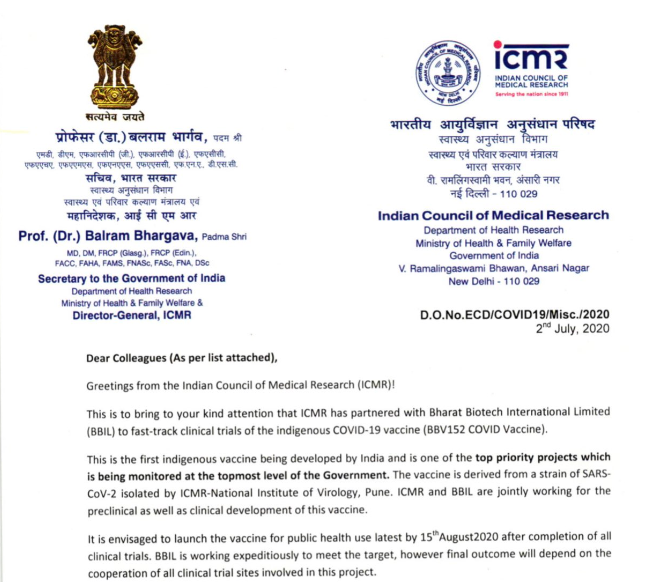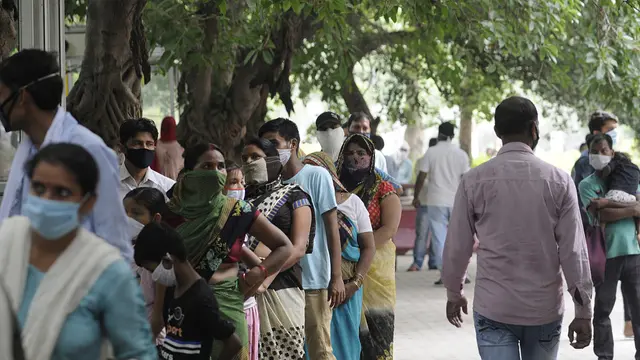The Indian Academy of Sciences (IASc) has issued a statement warning that the timeline set by health officials on vaccine development is unreasonable and may compromise rigorous scientific processes and standards.
The statement came after the Indian Council of Medical Research (ICMR) had said it "envisaged" an indigenous vaccine will be launched by August 15, India's Independence Day.
In an open letter circulated on social media last Thursday, Balram Bhargava, ICMR director-general, said the organization had partnered with Bharat Biotech International Limited, one of the Indian companies to have developed coronavirus vaccines, to fast-track clinical trials of a COVID-19 vaccine.

Screenshot of the open letter written by Balram Bhargava, director-general of ICMR
Scientists, however, worry the action is unfeasible and raises unrealistic hope and expectations in the minds of the nation's citizens.
According to the local media, Prof Partha P Majumder, president of the IASc, was shocked by the ICMR's announcement, saying that it "gives a bad name to the industry of biomedical research and pharmaceuticals."
Generally, a vaccine would take years to develop. The process requires, at least, three scientifically executed clinical trials in a phased manner. The whole process includes safety evaluation, efficacy and side effects assessment at different doses, as well as large-scale trials on healthy people.
Although the ICMR made a subsequent clarification saying August 15 was "not a deadline" and was merely an attempt to cut red tape, experts are not willing to buy it.
While administrative approvals can be expedited, the scientific processes of experimentation and data collection have a natural time span that cannot be hastened without compromising standards of scientific rigor, the IASc statement said.
Currently, six biotech companies in India are working on COVID-19 vaccines, and gained approval to conduct clinical trials last week.
Data shows that India on Monday became the country with the third-highest coronavirus caseload in the world, with over 24,200 confirmed cases in 24 hours being reported, taking the total to nearly 700,000.
Major cities including New Delhi and Mumbai are suffering the most, and critics say not enough tests are being conducted.
The surge has forced authorities to convert hotels, wedding halls, a spiritual center and even railway coaches to help provide care to coronavirus patients.
Nevertheless, the Indian government has gradually lifted virus restrictions to help the battered economy.
(CGTN)
 简体中文
简体中文





